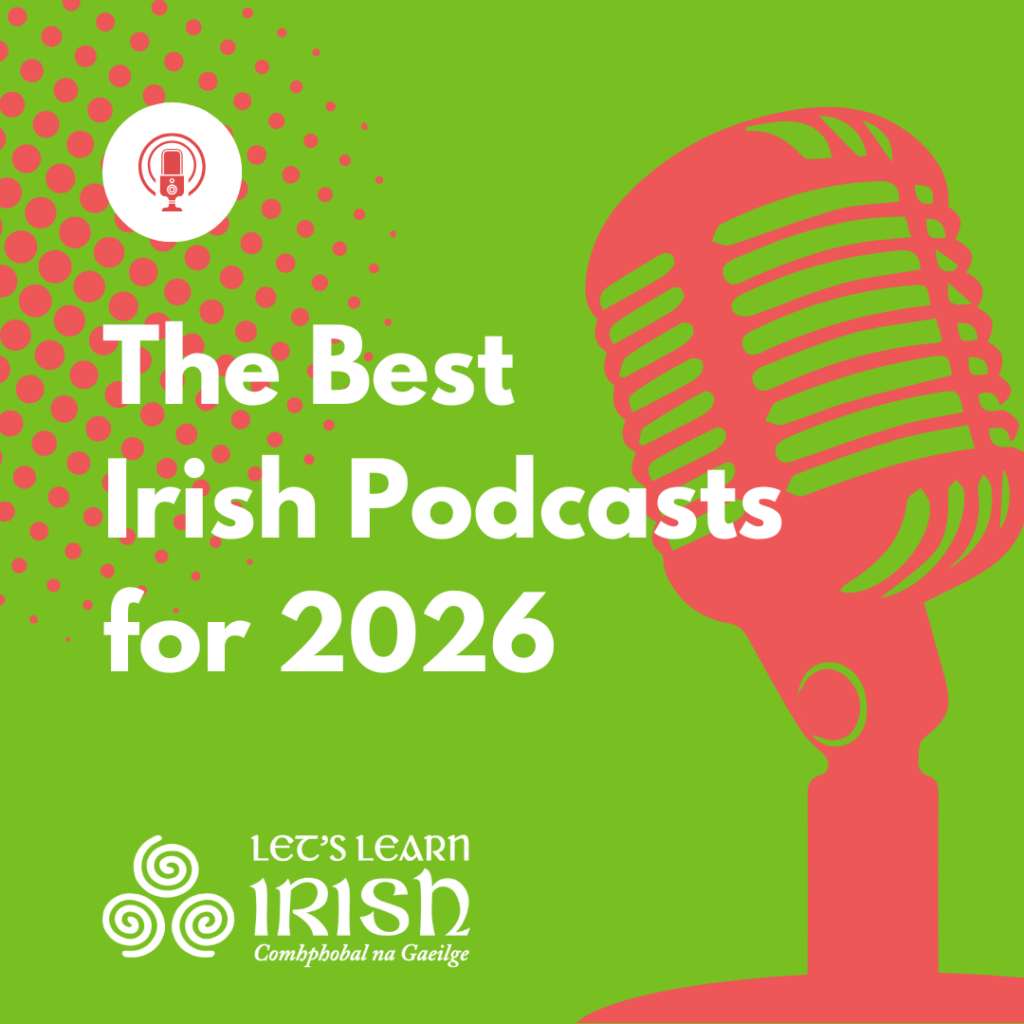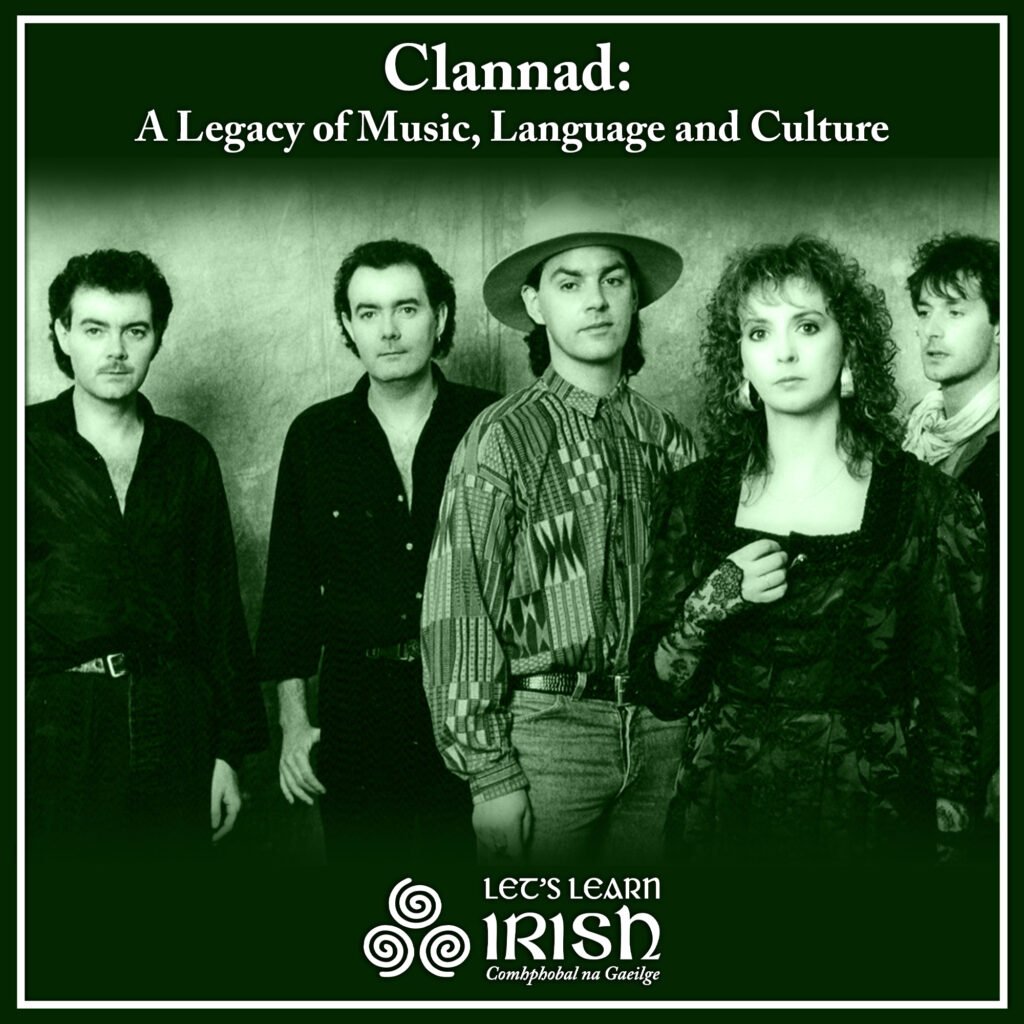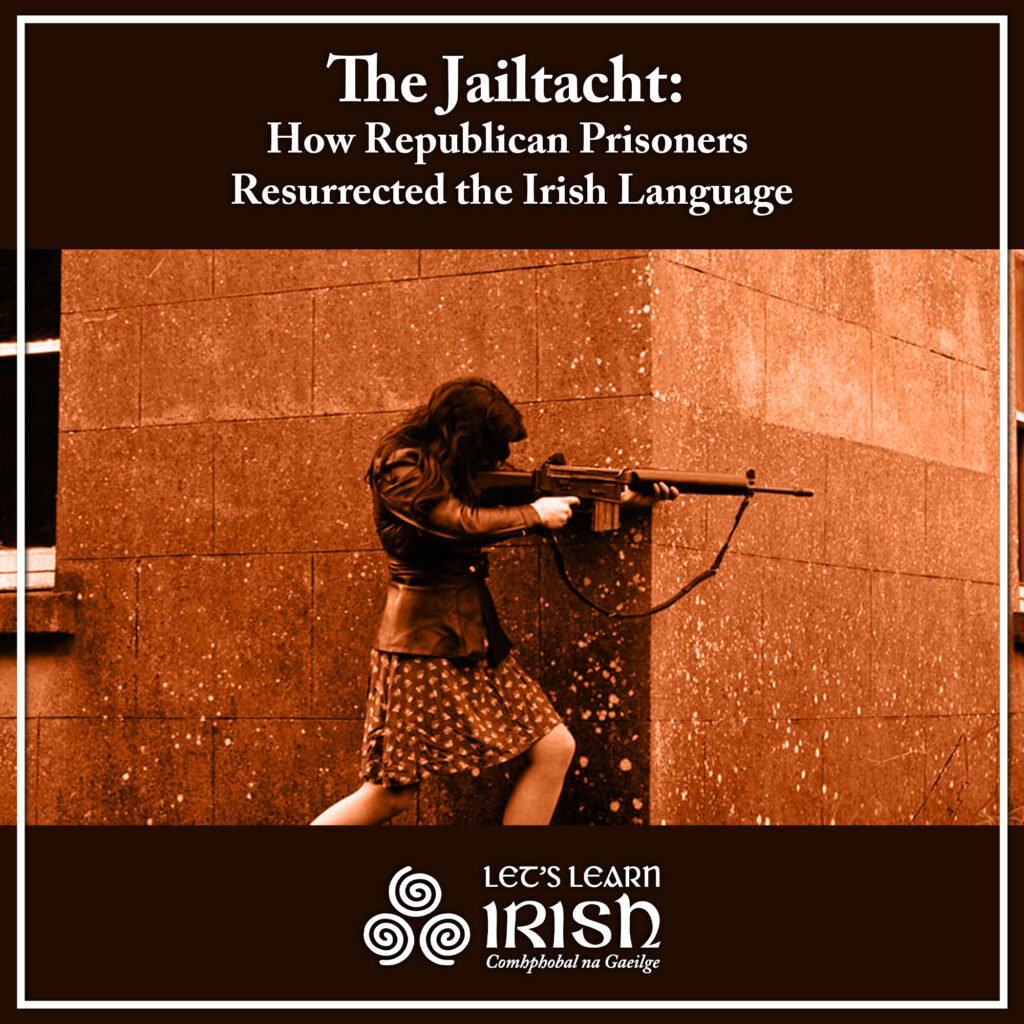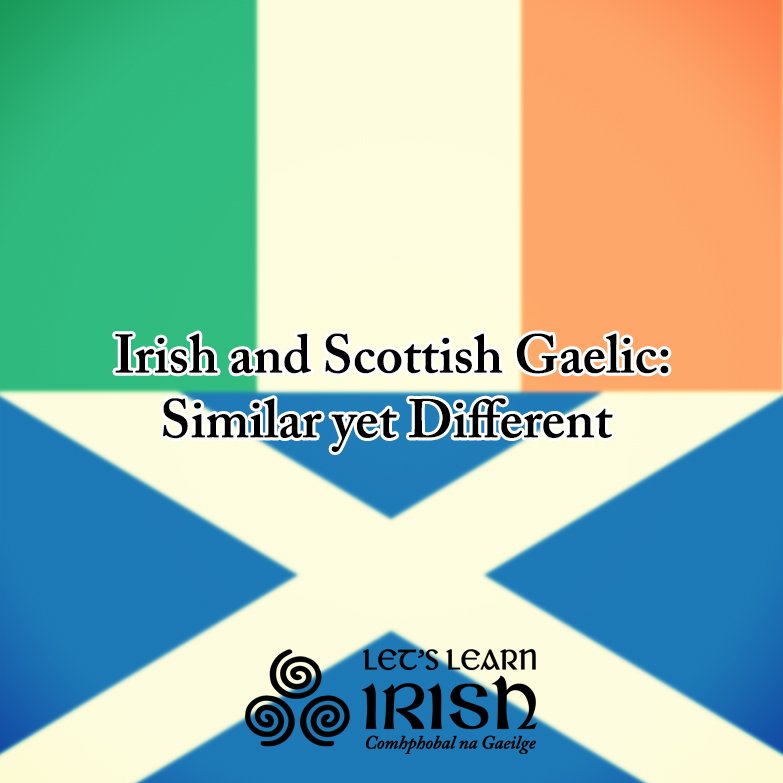Teangacha: Languages
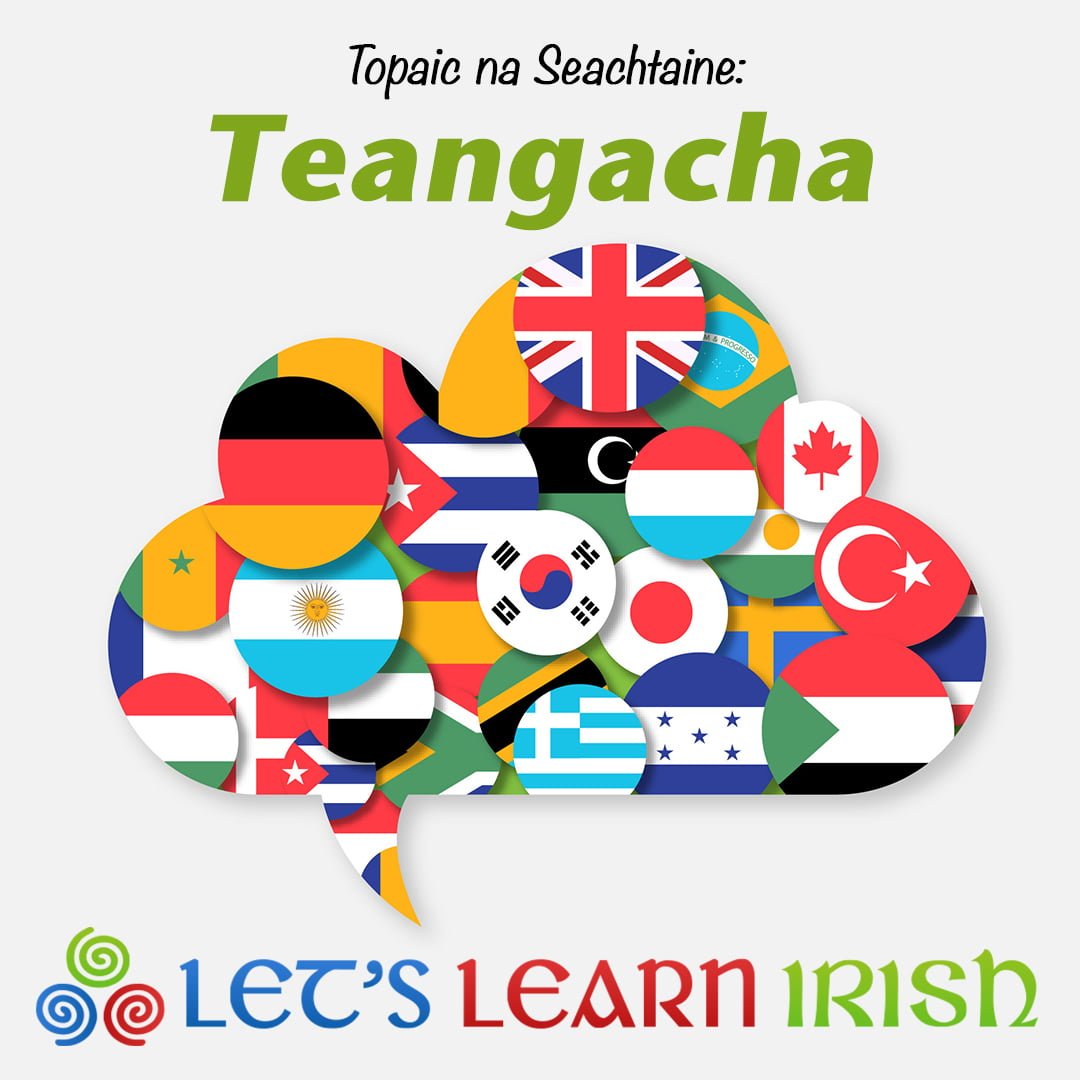
Focail / Words
Afrikaans – An Afracáinis
Arabic – An Araibis
Cantonese – An Chantainis
Catalan – An Chatalóinis
Chinese – An tSínis
Croatian – An Chróitis
Dutch – An Ollainnis
English – An Béarla
Flemish – An Phléimeannais
French – An Fhraincis
German – An Ghearmáinis
Greek – an Ghréigis
Indonesian – An Indinéisis
Irish – An Ghaeilge
Italian – An Iodáilis
Korean – An Chóiréis
Japanese – an tSeapáinis
Latin – An Laidinis
Latvian – An Laitvis
Mandarin – An Mhandairínis
Mongolian – An Mhongóilis
Polish – An Pholainnis
Russian – An Rúisis
Slovenia – An tSlóivéinis
Spanish – An Spáinnis
Swahili – An tSvahaílis
Vietnamese – An Vítneaimis
Welsh – An Bhreatnais
Frásaí / Phrases
Two languages. – Dhá theanga.
They teach languages here. – Múintear teangacha anseo.
What language did they speak? – Cén teanga a labhair siad?
They spoke both languages. – Bhí an dá theanga ar a dtoil acu.
They are fluent in both languages. – Tá siad líofa sa dá theanga.
How many languages do you have? – Cé mhéad teanga atá agat?
Languages are taught in this school. – Múintear teangacha sa scoil seo.
He was very interested in languages. – Bhí suim mhór aige i dteangacha.
The language they spoke was Irish. – Ba í Gaeilge an teanga a labhair siad.
A country without language is a country without soul. – Tír gan teanga, tír gan anam.
A large number of languages are being used in Ireland today. – Tá líon mór teangacha in úsáid in Éirinn sa lá atá inniu ann.
Bígí páirteach!
Join the online Irish community at LetsLearnIrish.com.
Follow on social media @LetsLearnIrish.


